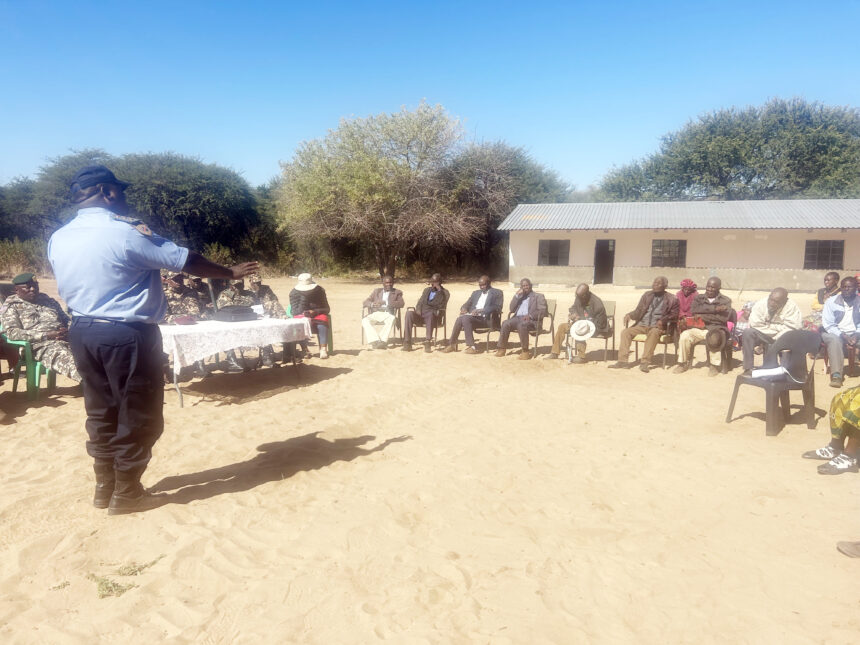CHOI – Namibia and Botswana have officially launched Phase Two of their joint Civil-Military Cooperation (CIMIC) sensitisation campaign.
Running from 9 June to 5 July 2025, the campaign underscores a powerful message: security and peaceful coexistence begin with informed, united communities.
The sensitisation drive – covering 27 villages in Namibia and 71 in Botswana – will address escalating cross-border issues, such as poaching, stock theft, illegal border crossings, human-wildlife conflict and smuggling of illicit goods.
This marks a continuation of the first phase held in 2024, which reached communities from Impalila Island to Mohembo in Namibia and Kazungula to Shakawe in Botswana.
The latest campaign expands further, focusing on villages previously left out.
It stretches from Mohembo to Union’s End in Namibia and Shakawe to Union’s End in Botswana.
The region is strategically split into Sector Two (Mohembo to Trans-Kalahari in Namibia/Shakawe to Mamuno in Botswana) and Sector Three (Trans-Kalahari to Union’s End in Namibia/Mamuno to Union’s End in Botswana).
The campaign kicked off in Zambezi at Ngoma and Chichimane on Monday.
The campaign will also cover Choi, Kongola and Omega 1, 2 and 3.
It will then proceed to the Kavango East, Omaheke, Otjozondjupa and Hardap regions.
Reading the joint statement on behalf of both defence forces, Namibian Defence Force’s Lieutenant Colonel Petrus Shilumbu said, “This campaign is not just about security. It’s about building bridges between our peoples. We aim to strengthen the bonds of cooperation and inspire a culture of peaceful coexistence, conservation and shared responsibility. Our communities must be part of the solution”.
The CIMIC campaign is a direct outcome of Decision 71 of the Botswana-Namibia Bi-National Commission (BNC), made during its 2022 session in Gaborone.
This decision mandated the Namibian Defence Force (NDF) and Botswana Defence Force (BDF) to spearhead a joint CIMIC Implementation Plan – a strategy that places people at the heart of defence and development.
The current campaign is being implemented in close collaboration with various government offices, ministries, agencies and community stakeholders, ensuring a holistic approach to security and awareness.
From public gatherings to interactive discussions, the initiative is designed to educate communities on the importance of border discipline.
It highlights strategies for human-wildlife conflict mitigation, as well as the dangers of illicit trade and trafficking.
Another important focus is the role of civil-military cooperation in a democratic society and the value of conservation for future generations.
“We are not just patrolling borders. We are building understanding. This is the future of regional security: inclusive, community-driven and focused on unity,” said Shilumbu.



